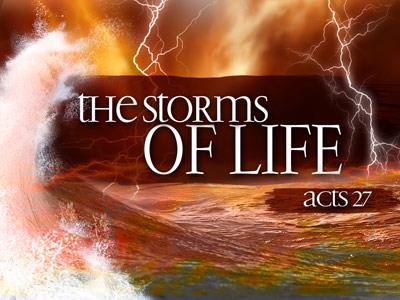-
God Is Our Rescuer Series
Contributed by Michael Deutsch on Jul 22, 2013 (message contributor)
Summary: We often fall into depression and despair, but God promises He will rescue and redeem us.
July 21, 2013
The other day I was watching the movie, “The Magnificent Seven.” It’s a great old western. As the movie ended, a thought occurred to me as the final two gunslingers turned to go home . . . how did they know which way was home? I mean, they didn’t have a compass, they didn’t have a navigation system, there was no google maps or mapquest. So, how did they know which way to go?
Well, how’s this for a fact, the average person travels an average of 275 miles a year aimlessly driving around lost, rather than asking for directions. Accidents are caused by people looking at maps, GPS systems, and going the wrong direction on one way streets. Some accidents occurred because the driver was distracted while arguing with a passenger when they were lost. Being lost is not fun.
Being lost while driving is a temporary thing. Eventually we find our way to our destination, or just go home. But, sometimes in life, we plain and simply feel lost. Often times we go through periods of life where we don’t think we’re going to make it. It could be a situation about a child, a spouse, work, school, family, friends. Sometimes our situations hit us like a ton of bricks and we feel totally paralyzed, we can’t catch our breath, and we don’t know where to turn.
Well, as we finish a summer of Psalms, I want to look at a very powerful Psalm, Psalm 77. Let’s look at the first 4 verses and see what shape the psalmist is in.
1 I cry aloud to God, aloud to God, and He will hear me.
2 In the day of my trouble I seek the Lord; in the night my hand is stretched out without wearying; my soul refuses to be comforted.
3 When I remember God, I moan; when I meditate, my spirit faints.
4 You hold my eyelids open; I am so troubled that I cannot speak.
Do you hear the emotion in this? You can’t read this without emotion. The psalmist, Asaph, is crying out to God. The root for crying out is to SHRIEK. He’s in distress and he’s seeking the Lord.
And often times our greatest times of distress and crying out to God occurs in the night. It was what St. John of the Cross called “The Dark Night of the Soul.” At night we lay in bed – and toss and turn, we can’t sleep. Our heart, spirit and mind are racing. We’re searching, we’re crying, we’re shrieking. There is no comfort for our body and soul. Our spirit faints, we refuse to be comforted because we’re in so much distress. We can’t even speak, we’re so much at a loss for what to say and how to say it. We’re exhausted, we’re depressed.
Isn’t this a great Psalm? And you know what’s so great about it, it’s real! It’s raw, and it’s a reminder that we can come to God and cry out to Him and He’s not going to run away, or send a lightening bolt to strike us down for being depressed or in despair.
We see people like Elijah running and hiding under a juniper tree, telling God to kill him now. Paul had so many difficult experiences that he, “even despaired of life itself” (1 Corinthians 1:8). Jeremiah was called the “weeping prophet.” We read other psalms which speak of despair as well. And how many times did Jesus deeply sigh and mourn His people?
Many of the world’s and the church’s greatest leaders have dealt with despair and depression. People like Abraham Lincoln, Charles Schulz, Beethoven, Ernest Hemingway, Terry Bradshaw, Winston Churchill confessed he was “hounded by the black dog of despair.” Charles Haddon Spurgeon, one of the great preachers of the 1800's, continually fought depression.
Sometimes life gets to us. I’m not going to go into reasons we get depressed and feel desperate. I’m not here to diagnose or have a discussion about depression or symptoms. Let me just say upfront, there’s nothing wrong with taking medicine for depression. We take medicines for lots of things, and there’s nothing wrong with taking anti-depressants if you need them.
Now, I want to step back for a moment and let you know why I’m using the ESV of the Bible compared to the popular NIV. I believe there is a huge distinction in the translation. Look at the two versions side by side.
ESV —I cry aloud to God, aloud to God, and He will hear me.
NIV — I cried out to God for help; I cried out to God to hear me.
My point is there is a huge difference in the meaning. The better translation is what we’re using and it’s much more comforting, too. Asaph was telling us right from the get go . . . God will hear me, or as some versions say, God will give ear to me. God is listening and He’s responding. The NIV makes it sound like I’m pleading with God to listen to me. Nope! Take heart, friends, God is listening.

 Sermon Central
Sermon Central



